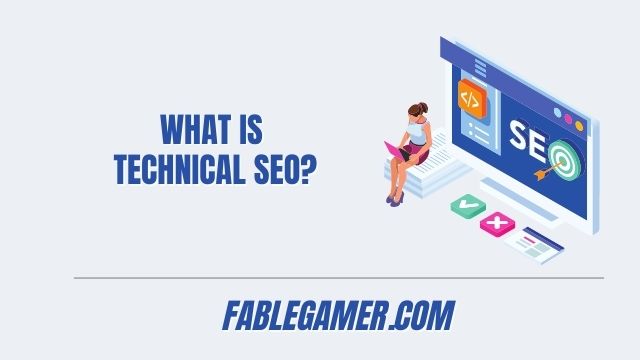Technical SEO is the part of SEO that works behind the scenes to help search engines crawl, index and understand your website.
Until these aspects of SEO are properly optimized, your efforts in content and link building will have minimal impact.
A technical SEO audit can identify these issues and fix them immediately. This way, you can start seeing results from your SEO strategy right away.
Page speed
In technical SEO, page speed is a crucial ranking factor that influences how your site will rank on search engines. It is also a key performance indicator that affects user experience, bounce rate and conversions.
A page’s speed is determined by a number of factors, including server quality, image compression and file sizes. It can also be affected by plugins and scripts that are embedded on the page.
Thankfully, Google offers a PageSpeed Insights Tool to help you determine what is affecting your website’s speed. It breaks everything up into different categories, providing you with an estimate of how much each issue impacts your site’s speed and how to prioritize your efforts.
There are a number of different metrics that Google measures, but the one most important for page speed is Time to First Byte (TTFB). This metric shows you how long it takes your browser to receive the first byte from a web server.
Crawlability
Crawling and indexability are two of the most important aspects of technical SEO. Without these two things, your site’s rankings will suffer and you’ll be losing out on potential traffic to your website.
Search engines like Google use bots (known as crawlers) to find and understand websites on the internet. These crawlers follow links on pages to see what’s on them, then scan the content, and index it based on what they find.
They’ll also follow any links to other sites and pages, which gives them a comprehensive view of what’s on your website. This is why it’s so important to make your website as easy to crawl and index as possible.
Some of the most common issues that affect crawlability are broken links, internal link structure, and looped redirects. If you have any of these problems, it’s crucial to fix them before you start optimizing your site for search engines. You can also consider submitting a sitemap to help Google navigate your site easier.
Mobile-friendliness
Mobile-friendliness is one of the most important factors in technical SEO. Google wants to ensure that users get a great experience when they visit your site from their mobile devices.
If your site isn’t mobile friendly, you’ll lose visitors, which will affect your rankings. If you want to be sure that your site is mobile-friendly, you should check it out using a tool such as Google’s Mobile-Friendly Test.
You can also use Google PageSpeed Insights and Mobile Speed Test to test your website’s speed on both desktops and mobile devices. These tools analyze how quickly your pages load and recommend ways to make them faster.
To be sure that your site is mobile-friendly, make sure that it displays correctly on different screen sizes and resolutions. You can do this by creating a media query that changes the font size or other content elements to match the size of the display.
Structured data
Structured data is a way to organize and classify information on your website. It helps search engines like Google understand your content better, which can improve its ranking on SERPs and boost click-through rates.
Businesses use structured data in a variety of ways, from communicating with customers to collecting billing and shipping information for compliance reasons. The data can be in the form of text, images, video, and more.
SEO experts believe that adding structured data to your site can help you qualify for rich snippets, which stand out among the SERP listings and can increase organic click-through rates.
However, before you add structured data to your website, it’s important that you understand what it is and how to implement it properly. There are many structured data markup formats supported by Google, but you should choose one that’s easy to implement and supports the most relevant data types.
-
My passion for SEO started when I launched my first website and realized how important it is to have a solid online presence. Since then, I've dedicated my career to mastering the art of SEO, and I'm excited to share my knowledge and insights with you. Through my blog, you'll learn everything you need to know about search engine optimization and how to take your website to the top of the rankings.
View all posts
Other Recommendations:
- Knowing The Importance of Having an SEO Strategy SEO (Search Engine Optimization) is the process of optimizing your website so that search engines like Google rank it higher. This can lead to more organic traffic and increased brand…
- Find Out The Strategies to Increase Sales Through Google… For someone who is new to online marketing, it may be possible to ask why Google can help bring in sales. In digital marketing, Google is a search engine platform…
- 4 Ways to Promote Your Website to Get A Lot of Visitors Have you created a website but are still confused about how to promote a website? Websites that have been created need to be promoted in order to get high rankings…
- Why Your Website Ranking Might Drops on Google Search Result Google is the most popular search engine that is widely used by online businesses as their marketing tool by using the website as a medium. Therefore, so that the online…
- Want to Run a Side Business? Follow These Tips &Tricks! If you want to run a side business but are still confused about where to start? Relax because in this article we have prepared tips & tricks that can help…
- The Importance of Search Engine Marketing (SEM) For Business In addition to SEO you can also do Search Engine Marketing (SEM) which is also one way to display your website on page one of search engines. Search Engine Marketing…
- 6 Reasons Why Websites Don't Bring In Potential Customers Already have a website but sales don't increase? Maybe you already know that the website is a 24-hour non stop seller tool. But why doesn't your website bring in potential…
- 5 Types of Businesses That Really Need SEO Search Engine Optimization is one of the online marketing strategies that has grown rapidly in recent years. Where many industries are utilizing SEO to help them in increasing sales. For…
- Want to Learn SEO? Get Started With These 7 SEO Metrics! Search Engine Optimization (SEO) is a collection of techniques applied to websites to increase their reach more broadly. If you do it right then you can get better rankings and…
- 4 Ways to Optimize Old Content on a Website Here Are The… Did you know that optimizing old content on a website can provide many benefits to your website's ranking in search engines? If you think that creating a website is enough…
- How To Manage Websites To Increase Ranking & Traffic Do you have a new website and are confused about how to manage a website to increase ranking and traffic? Well, that's right, because in this paper we have prepared…
- 8 Important On Page SEO Factors That Affect Your Web Ranking Learning SEO means you have to know the important factors of on page SEO to execute a successful SEO strategy. To generate higher rankings in Google search results, SEO plays…
- Powerful Ways to Brand Products Through Social Media There are powerful ways to build product branding on social media that you can apply to your business. The digital era makes it easier for businesses to convey messages to…
- The Benefits of Responsive Web Design With an ever-increasing number of internet users accessing it via mobile devices, static desktop websites are no longer sufficient. Responsive web design provides the solution to this issue. It adjusts…
- What is White Hat SEO? White Hat SEO is an ethical search engine optimization technique that adheres to Google's quality guidelines. It can be an effective strategy for driving traffic, building a brand and increasing…
- Advantages of Doing SEO Marketing That You Should Know SEO marketing is very important for businesses, because it can help online business people get quality prospects. For people who run an online business, they are familiar with Search Engine…
- How to Properly Display a Website on the First Page of… Looking for how to display your website on the first page of Google? Well, that's right, because in this article we have prepared several surefire ways to display a website…
- Let’s Get to Know More About Responsive Web Design Maybe at this time you are still confused about what Responsive web design and mobile friendly web design are. If you do, let's get to know about responsive web design…
- 4 Ways to Choose the Right Keywords For SEO Strategy If you ask if there is an easy way or step to choose the right keywords for an SEO strategy, then this is where you will find the answer. Because…
- 5 Success Factors of Building a Blog Want to know the success factors in building a blog? If you have just created a professional blog then the next stage is to develop it. Especially if your goal…
- Get to know Technical SEO and Its Benefits for Websites What is technical SEO and what are the benefits for websites? If you are familiar with the term SEO, do you already know about technical SEO and its benefits for…
- What is White Hat SEO? Why Should You Do It? Maybe you are familiar with SEO but are you familiar with white hat SEO? Search Engine Optimization or ABBREVIATED as SEO is the process of improving website rankings with the…
- How To Optimize Blog Posts For SEO If you have a blog, of course you already know the importance of blogs for business. But do you already know how to optimize blog posts to make them more…
- Benefits of Websites for Restaurant / Restaurant Business In this digital era, every business must have a website to improve the brand image, including the restaurant and café business. Restaurants and restaurants also need to have a website,…
- Disadvantages If You Stop Running SEO Strategies Are you planning to stop implementing SEO on your website or have you even stopped? If you care about rankings and website traffic then you must know the disadvantages if…

